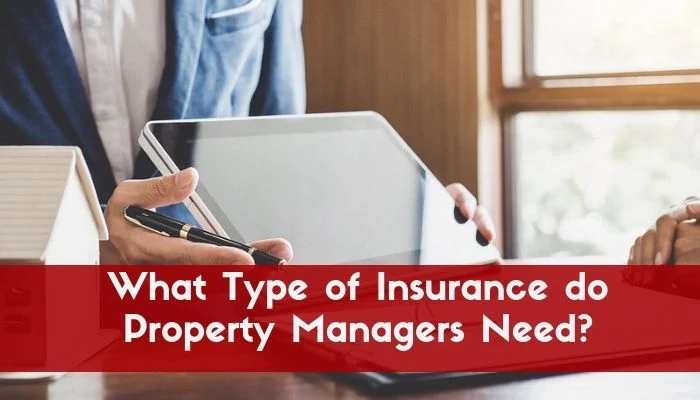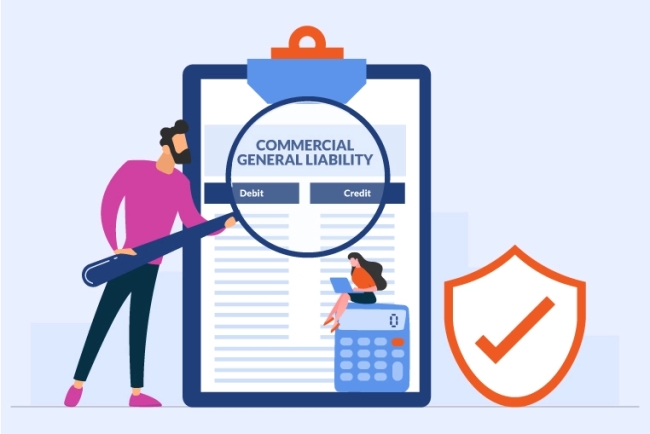Property management companies are responsible for overseeing and maintaining rental properties, whether they are residential or commercial. Managing properties comes with a variety of risks, from physical damage to legal disputes, which makes insurance essential for property management firms. Proper insurance coverage protects the company, its employees, and the properties they manage from a wide range of potential liabilities.
In this article, we will explore the different types of insurance that a property management company may need, focusing on general liability insurance, and discussing other critical coverage types to ensure comprehensive protection.
General Liability Insurance for Property Management Companies
General liability insurance is one of the most essential types of coverage for property management companies. This insurance helps protect against third-party claims related to bodily injury, property damage, or personal injury, such as slander or libel.
What General Liability Insurance Covers
-
Bodily Injury If a tenant or visitor is injured while on a property managed by the company, general liability insurance can cover medical expenses and potential legal costs arising from the injury.
-
Property Damage If the property management company’s operations lead to damage to someone else’s property, this insurance can help pay for repair or replacement. For example, if a contractor hired by the management company accidentally damages a tenant’s personal belongings, general liability can cover the cost of the damage.
-
Personal Injury Claims of defamation, slander, or libel made by tenants or other third parties can also be covered under general liability insurance. If the property manager inadvertently makes a defamatory statement about a tenant, they could face a lawsuit, and general liability insurance would help cover the legal costs.
Importance of General Liability Insurance
For property managers, the risk of accidents and injuries is always present, especially in multi-unit residential properties. Something as simple as a slip-and-fall accident in a common area could lead to expensive lawsuits. With general liability insurance in place, the property management company is shielded from bearing the full cost of these potential claims.
Property managers frequently work with contractors and vendors, and any damage or injury that occurs as a result of these interactions could also lead to legal action. General liability insurance provides a financial safety net to protect against unforeseen accidents and claims.
Errors and Omissions (E&O) Insurance
In addition to general liability, property management companies should consider Errors and Omissions (E&O) insurance, also known as professional liability insurance. This coverage protects the company against claims of negligence, mistakes, or failure to perform professional duties.
What E&O Insurance Covers
-
Negligence If the property manager is accused of negligence, such as failing to maintain the property to an acceptable standard, E&O insurance can cover legal fees and any resulting settlements or judgments.
-
Mismanagement of Funds Property managers are often responsible for collecting rent, security deposits, and other payments. E&O insurance can protect the company in cases where a tenant or property owner claims that the funds were mismanaged or improperly handled.
-
Failure to Perform This insurance also covers claims where the property manager is accused of failing to fulfill their contractual duties, such as not conducting regular maintenance or repairs in a timely manner.
Importance of E&O Insurance for Property Managers
The role of a property manager involves making decisions that affect both property owners and tenants. Even the most experienced property management companies can make mistakes, and E&O insurance provides peace of mind knowing that the business is protected from potential lawsuits related to these errors.
A property management company could face costly legal claims if, for example, they fail to properly screen tenants or neglect to address maintenance issues that lead to property damage. E&O insurance ensures that the company can handle these claims without experiencing significant financial strain.
Property Insurance
For property management companies that own buildings or maintain offices, commercial property insurance is vital. This insurance protects the company’s physical assets, such as buildings, office equipment, and inventory, from damage or loss caused by covered events such as fires, storms, or vandalism.
What Property Insurance Covers
-
Buildings If the property management company owns buildings, commercial property insurance can help cover the costs of repairing or rebuilding in the event of damage from a covered peril, like fire or wind damage.
-
Office Equipment Computers, furniture, and other office equipment are often essential for the day-to-day operations of a property management company. Property insurance ensures that these items are protected if they are damaged or destroyed.
-
Lost Income If a covered event forces the property management company to temporarily cease operations, property insurance can help cover lost income and operating expenses until the business can resume.
Importance of Property Insurance for Property Management Companies
Without commercial property insurance, a property management company could face significant financial losses in the event of a disaster. Whether it’s a fire at the company’s office or a storm that damages rental properties under management, property insurance ensures that the business can recover quickly.
For companies that own rental properties, this insurance can also protect against losses incurred due to property damage, ensuring that the company’s investments are safeguarded.
Workers’ Compensation Insurance
If a property management company has employees, it is legally required in most states to carry workers’ compensation insurance. This coverage provides benefits to employees who are injured or become ill as a result of their job.
What Workers' Compensation Insurance Covers
-
Medical Expenses Workers’ compensation insurance covers the cost of medical treatment for employees who are injured on the job. This includes doctor visits, hospital stays, surgery, and rehabilitation.
-
Lost Wages If an employee is unable to work due to an injury or illness, workers’ compensation insurance provides wage replacement until the employee can return to work.
-
Disability Benefits In cases where an employee is permanently disabled as a result of a workplace injury, workers’ compensation insurance can provide long-term benefits.
-
Legal Costs If an employee sues the company over a workplace injury, workers’ compensation insurance can help cover legal fees.
Importance of Workers' Compensation Insurance
Property management employees may face various risks on the job, such as injuries from repairing properties, conducting inspections, or dealing with tenants. Workers’ compensation insurance ensures that the company is protected from the financial impact of employee injuries while also providing crucial benefits to the injured employee.
Failure to carry workers’ compensation insurance can result in significant fines, lawsuits, and even the closure of the business in some states.
Commercial Auto Insurance
Many property management companies use vehicles to travel between properties or transport equipment. Commercial auto insurance is essential for protecting these vehicles and their drivers.
What Commercial Auto Insurance Covers
-
Vehicle Damage This insurance covers repairs or replacement of company vehicles if they are damaged in an accident, vandalized, or stolen.
-
Liability If a company vehicle is involved in an accident that results in injury or property damage, commercial auto insurance can cover the costs of medical bills and repairs.
-
Uninsured Motorist Coverage This type of coverage protects the company if an uninsured or underinsured driver causes an accident involving a company vehicle.
Importance of Commercial Auto Insurance for Property Management Companies
Property managers often rely on vehicles to conduct property inspections, meet with tenants, or transport supplies. Commercial auto insurance ensures that the company’s vehicles are protected and that the company is not liable for damages in the event of an accident.
Without this coverage, a property management company could face significant financial losses if one of its vehicles is involved in a costly accident or if a company vehicle is stolen.
Umbrella Insurance
Umbrella insurance provides additional coverage beyond the limits of a company’s existing liability policies. For property management companies, this can be a valuable way to ensure that they are fully protected against large claims.
What Umbrella Insurance Covers
Umbrella insurance kicks in when the cost of a claim exceeds the limits of a company’s general liability, commercial auto, or other liability policies. For example, if a general liability claim results in a judgment that exceeds the policy’s coverage limit, umbrella insurance can help cover the remaining amount.
Importance of Umbrella Insurance for Property Management Companies
Property management companies face various risks, from injuries on managed properties to auto accidents involving company vehicles. A severe claim could easily exceed the coverage limits of a standard insurance policy, leaving the company vulnerable to financial ruin. Umbrella insurance provides an extra layer of protection, ensuring that the company is covered in the event of a catastrophic claim.
A property management company needs a comprehensive insurance portfolio to protect itself from the numerous risks associated with managing properties. General liability insurance is the foundation, covering the most common risks like bodily injury and property damage. However, other coverages like errors and omissions insurance, workers’ compensation, commercial auto insurance, property insurance, and umbrella insurance are also crucial for a well-rounded protection strategy.
By investing in the right types of insurance, property management companies can safeguard their assets, protect their employees, and provide peace of mind to property owners and tenants alike. Whether you are just starting in the industry or managing multiple properties, having the right insurance coverage is key to long-term success and financial stability.




















